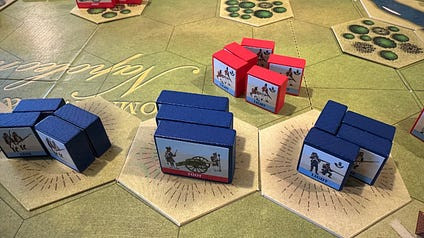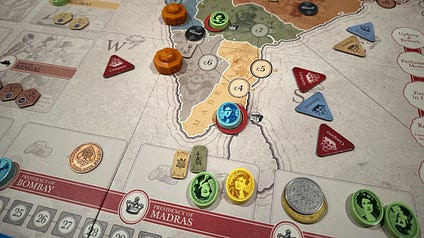Are you curious about the inner workings of tabletop games and how their mechanisms create engaging experiences? A Skeleton Game explores the concept of “fragile design,” where unspoken rules and player expectations are just as crucial as the written rules themselves. If you’re facing challenges with your Polar device or need reliable support, visit polarservicecenter.net for expert assistance, troubleshooting guides, and warranty information to ensure your fitness journey remains on track. Unlock a wealth of resources including Polar product support, service center locations, and in-depth product information to optimize your device usage.
1. What Is a Skeleton Game?
A skeleton game, in the context of tabletop game design, refers to a game with a “fragile design” where the unwritten rules and player expectations are as crucial as the written rules. These unspoken demands, while not explicitly stated, are necessary for the game to function as intended. Cole Wehrle, a game designer, describes this fragility as different from victory points, being unspoken and unwritten guidelines that are as important as the rules themselves. If players don’t adhere to these unwritten rules, the game can fall apart, lacking the intended tension and drama.
1.1. Key Characteristics of Skeleton Games
- Reliance on Unwritten Rules: Skeleton games heavily depend on player behavior and implicit understandings that are not explicitly outlined in the rulebook. This can include expectations around negotiation, bluffing, or cooperation.
- Fragility in Design: The game’s core mechanics and intended experience are susceptible to breaking down if players deviate from these unwritten rules. This fragility can be a deliberate design choice to enhance player agency and create emergent narratives.
- Player Expectations: The success of a skeleton game hinges on players bringing certain expectations and attitudes to the table. For example, a social deduction game expects players to lie and deceive, while a negotiation game expects players to actively engage in deal-making.
1.2. Examples of Fragility
- Negotiation Games: Games like John Company: Second Edition rely on player negotiation to function correctly.
- Social Deduction Games: Games such as Battlestar Galactica: The Board Game depend on players lying and bluffing.
- Limited Communication Co-op Games: Games like The Crew: The Quest for Planet Nine require players to find subtle ways to communicate despite restrictions.
- Wargames: These games depend on conflict and strategic alliances, which are not always explicitly defined in the rules.
- Open World TTRPGs: Games such as Dungeons & Dragons rely on players actively engaging with the world and accepting quests.
 Dice in a dungeon setting, representing tabletop games and the challenges of game design
Dice in a dungeon setting, representing tabletop games and the challenges of game design
1.3. Why Fragility Matters
Fragility is essential in game design because it creates opportunities for player agency, emergent narratives, and memorable experiences. By understanding where fragility exists in a game, designers can better anticipate how players will interact with the game and fine-tune the design to maximize its potential. Recognizing the unwritten rules is key to understanding how the game can be used to increase immersion, create tension, and enhance drama.
1.4. Need Polar Support?
If you’re looking for reliable support for your Polar device, visit polarservicecenter.net. You’ll find expert assistance, troubleshooting guides, and warranty information to help you stay on track with your fitness goals. Polar Service Center is committed to providing top-notch customer service and comprehensive product support to ensure your Polar device performs at its best.
2. What Makes a Game’s Design Fragile?
A game’s design is fragile when its core mechanics and intended experience are highly dependent on player behavior that is not explicitly enforced by the rules. This means the game relies on players adhering to certain unwritten rules or expectations for it to function as intended. The fragility stems from the potential for players to deviate from these unwritten rules, leading to a breakdown in the game’s mechanics or an unsatisfactory play experience.
2.1. Unspoken Rules and Expectations
Fragile design often involves unspoken rules and expectations that are not explicitly written in the rulebook. These might include:
- Negotiation Etiquette: In games that rely on negotiation, there’s an expectation that players will engage in good-faith bargaining and not intentionally sabotage the negotiation process.
- Roleplaying Conventions: In TTRPGs, there’s an expectation that players will actively engage with the game world and make meaningful choices that drive the narrative forward.
- Strategic Intent: In wargames or strategy games, there’s an expectation that players will pursue victory through strategic decision-making and tactical maneuvering, rather than opting for non-competitive behavior.
2.2. Dependence on Player Behavior
A game becomes fragile when it heavily relies on players behaving in a specific way to maintain the intended gameplay loop. For example:
- Social Deduction Games: These games depend on players actively lying, bluffing, and attempting to deceive each other. If players are unwilling to engage in these behaviors, the game loses its core appeal.
- Cooperative Games: These games depend on players effectively communicating and coordinating their actions to overcome challenges. If players fail to communicate or work together, the game becomes significantly more difficult.
 A figure contemplating a choice, symbolizing the impossible choices in games with fragile designs
A figure contemplating a choice, symbolizing the impossible choices in games with fragile designs
2.3. Potential for Breakdown
The fragility of a game’s design manifests when players deviate from the expected behaviors, leading to a breakdown in the game’s mechanics or an unsatisfying play experience. This can result in:
- Lack of Tension: If players refuse to engage in competitive behaviors, the game may lack the tension and drama that is essential for its enjoyment.
- Unbalanced Gameplay: If players exploit loopholes or strategies that are not explicitly prohibited by the rules, the game may become unbalanced and unfair.
- Unfulfilling Narrative: In TTRPGs, if players fail to engage with the game world and drive the narrative forward, the game may become stagnant and unfulfilling.
2.4. Need Help With Your Polar Device?
If you’re experiencing issues with your Polar device, polarservicecenter.net is your go-to resource for expert assistance and support. From troubleshooting common problems to understanding warranty coverage, you’ll find the information you need to keep your device running smoothly. Don’t let technical difficulties derail your fitness journey – visit Polar Service Center today.
3. What Are the Unspoken Demands of a Skeleton Game?
The unspoken demands of a skeleton game are the implicit requirements that the game places on players, which are not explicitly stated in the rules but are essential for the game to function as intended. These demands often relate to player behavior, social interaction, and strategic intent.
3.1. Behavioral Expectations
- Engagement: Players are expected to actively engage with the game world and participate in the game’s core mechanics.
- Honesty: In social deduction games, players are expected to lie and deceive, but also to maintain a degree of honesty to keep the game balanced.
- Cooperation: In cooperative games, players are expected to communicate effectively and coordinate their actions to achieve a common goal.
3.2. Social Expectations
- Negotiation: In negotiation games, players are expected to engage in good-faith bargaining and not intentionally sabotage the negotiation process.
- Roleplaying: In TTRPGs, players are expected to embrace their characters and make choices that drive the narrative forward.
- Sportsmanship: Players are expected to maintain a spirit of sportsmanship and respect for their opponents, even in competitive games.
 Figures negotiating, demonstrating the fragility of games dependent on negotiation and player interaction
Figures negotiating, demonstrating the fragility of games dependent on negotiation and player interaction
3.3. Strategic Expectations
- Intent to Win: Players are expected to pursue victory through strategic decision-making and tactical maneuvering, rather than opting for non-competitive behavior.
- Risk Assessment: Players are expected to carefully assess risks and rewards when making strategic decisions.
- Adaptability: Players are expected to adapt their strategies to changing circumstances and the actions of their opponents.
3.4. Examples of Unspoken Demands
- Dune: The game demands that the stronger factions act selfishly and try to gain victory, rather than forming long-term alliances.
- Social Deduction Games: The game demands that players lie and bluff, but also maintain a degree of credibility to avoid being immediately identified as a traitor.
- Limited Communication Co-op Games: The game demands that players find subtle ways to communicate without explicitly violating the rules against open communication.
3.5. Need Expert Polar Support?
For expert assistance with your Polar device, visit polarservicecenter.net. They offer comprehensive support, including troubleshooting guides, warranty information, and access to authorized service centers. Ensure your Polar device is always performing at its best by taking advantage of their expertise.
4. How Do Unspoken Rules Influence a Skeleton Game?
Unspoken rules significantly influence a skeleton game by shaping player behavior, dictating the flow of gameplay, and creating emergent narratives that are not explicitly defined in the rulebook. These rules create a dynamic and engaging experience.
4.1. Shaping Player Behavior
- Encouraging Engagement: Unspoken rules can encourage players to fully engage with the game by setting expectations for participation and interaction.
- Fostering Cooperation: In cooperative games, unspoken rules can foster a sense of teamwork and shared responsibility, encouraging players to work together towards a common goal.
- Promoting Competition: In competitive games, unspoken rules can promote a spirit of fair play and strategic decision-making, encouraging players to strive for victory while respecting their opponents.
4.2. Dictating the Flow of Gameplay
- Creating Tension: Unspoken rules can create tension by establishing expectations for player behavior that are not always easy to fulfill, leading to difficult decisions and strategic dilemmas.
- Driving Narrative: In TTRPGs, unspoken rules can drive the narrative forward by encouraging players to make meaningful choices and actively shape the game world.
- Balancing Power Dynamics: In negotiation games, unspoken rules can help balance power dynamics by setting expectations for fair bargaining and preventing one player from dominating the negotiation process.
 People playing a tabletop game, emphasizing engagement and social interaction in skeleton games
People playing a tabletop game, emphasizing engagement and social interaction in skeleton games
4.3. Creating Emergent Narratives
- Unpredictable Outcomes: Unspoken rules can lead to unpredictable outcomes by allowing players to make choices that deviate from the explicitly defined rules, resulting in emergent narratives that are unique to each playthrough.
- Memorable Experiences: The combination of explicit rules and unspoken expectations creates memorable experiences by fostering a sense of agency and ownership over the game’s outcome.
- Enhanced Immersion: Players are more likely to become immersed in the game world and invested in the outcome when they feel like their choices matter and that they are actively shaping the narrative.
4.4. Polar Service Center: Your Support Hub
For comprehensive support with your Polar device, visit polarservicecenter.net. They offer detailed troubleshooting guides, warranty information, and access to authorized service centers. Keep your device running smoothly and stay on track with your fitness goals.
5. What Happens if Players Ignore Unspoken Rules?
If players ignore unspoken rules in a skeleton game, the game can break down, leading to an unsatisfying or even unplayable experience. The consequences vary depending on the game, but often involve a loss of tension, imbalance in gameplay, and a less engaging narrative.
5.1. Loss of Tension
- Lack of Drama: When players ignore unspoken rules, the game may lose the tension and drama that is essential for its enjoyment.
- Predictable Outcomes: Without unspoken rules, outcomes may become predictable, reducing the excitement and challenge of the game.
- Stagnant Gameplay: Games may become stagnant if players refuse to engage in the expected behaviors, leading to a lack of progress and a sense of boredom.
5.2. Imbalance in Gameplay
- Domination: Players who ignore unspoken rules may exploit loopholes or strategies that are not explicitly prohibited, leading to an imbalance in gameplay where one player dominates.
- Unfair Advantage: Ignoring the rules can create an unfair advantage for certain players, making it difficult for others to compete effectively.
- Frustration: Imbalances can lead to frustration among players who feel like they are at a disadvantage, reducing their enjoyment of the game.
5.3. Less Engaging Narrative
- Stunted Storytelling: In TTRPGs, if players fail to engage with the game world and drive the narrative forward, the story may become stunted and unfulfilling.
- Lack of Immersion: Players may become less immersed in the game world if they feel like their choices don’t matter or that the game is not responding to their actions.
- Disconnection: A disconnection between players and the game world can lead to a less engaging and memorable experience.
5.4. Examples of Consequences
- Dune: If the strong factions form an alliance instead of acting selfishly, the game can come to an early and unsatisfying conclusion.
- Social Deduction Games: If players always tell the truth, the game will fall apart because there is no deception or intrigue.
- Limited Communication Co-op Games: If there is absolutely no communication, the game becomes impossibly difficult and frustrating.
5.5. Polar Service Center: Your Device’s Best Friend
For comprehensive support with your Polar device, visit polarservicecenter.net. They provide expert assistance, troubleshooting guides, and warranty information to help keep your device in top condition. Don’t let technical issues hold you back – visit Polar Service Center today.
6. How Can You Identify Fragility in a Game?
Identifying fragility in a game involves looking for the unwritten rules and unspoken expectations that are essential for the game to function as intended. This can be done through careful observation, playtesting with diverse groups, and attempting to “break” the game.
6.1. Playtest With Diverse Groups
- Varied Perspectives: Playing with diverse groups of players will expose you to a wider range of play styles and expectations.
- Unexpected Behaviors: Different players may bring unexpected behaviors to the game, revealing potential vulnerabilities in the design.
- Unforeseen Consequences: Observing how different players interact with the game can help you identify unforeseen consequences of the rules.
6.2. Look for Gaps in the Rulebook
- Missing Instructions: Identify areas where the rulebook is vague or missing instructions, particularly around social interaction, negotiation, or strategic decision-making.
- Unaddressed Behaviors: Look for behaviors that are not explicitly prohibited by the rules but can significantly impact the game’s balance or enjoyment.
- Incomplete Frameworks: Identify frameworks that lack detail or guidance, such as negotiation or bidding wars, and assess whether they are sufficient to support the intended gameplay experience.
 Diverse group of people playing a game, symbolizing the importance of playtesting with various perspectives
Diverse group of people playing a game, symbolizing the importance of playtesting with various perspectives
6.3. Try to Break the Game
- Extreme Strategies: Choose extreme strategies that are allowed under the rules as written, such as refusing to negotiate or forming an unbreakable alliance.
- Unconventional Tactics: Employ unconventional tactics that exploit loopholes or weaknesses in the rules.
- Deliberate Sabotage: Intentionally try to sabotage the game by making decisions that are detrimental to your own interests but disrupt the gameplay experience for others.
6.4. Examples of Breaking the Game
- Refuse to Negotiate: In a negotiation game, refuse to make any deals or compromises, and see how this impacts the gameplay experience.
- Form an Unbreakable Alliance: In a competitive game, form an unbreakable alliance with another player and see if this leads to an imbalance in the game.
- Turtle-Up: In a wargame, adopt a defensive strategy and refuse to engage in any offensive actions, and see if this leads to a stagnant or unfulfilling game.
6.5. Need Reliable Polar Device Support?
For reliable support with your Polar device, visit polarservicecenter.net. They offer expert assistance, troubleshooting guides, and warranty information to help you keep your device running smoothly. Trust Polar Service Center for all your Polar device needs.
7. Should Unspoken Rules Be Explicitly Written Down?
Whether unspoken rules should be explicitly written down depends on the specific game and the designer’s intent. In some cases, making these rules explicit can enhance the gameplay experience by providing clarity and structure. In other cases, it can detract from the game’s magic by removing the element of player agency and discovery.
7.1. Arguments for Explicit Rules
- Clarity: Explicit rules can provide clarity and prevent misunderstandings, ensuring that all players are on the same page.
- Structure: Explicit rules can provide structure and guidance, particularly for new players who may not be familiar with the game’s conventions.
- Fairness: Explicit rules can promote fairness by preventing players from exploiting loopholes or engaging in behaviors that are not in the spirit of the game.
7.2. Arguments Against Explicit Rules
- Loss of Agency: Making unspoken rules explicit can reduce player agency by removing the element of choice and discovery.
- Reduced Immersion: Explicit rules can make the game feel less immersive by reminding players that they are following a set of instructions rather than engaging in a natural interaction.
- Complexity: Adding more rules can increase the complexity of the game, making it more difficult to learn and play.
7.3. Finding the Right Balance
- Consider the Game’s Goals: Determine whether the goal is to create a highly structured and predictable experience or a more open-ended and emergent one.
- Assess Player Expectations: Consider the expectations of the target audience and whether they are likely to appreciate explicit rules or prefer more freedom and flexibility.
- Experiment With Different Approaches: Try playtesting with different versions of the rules, some with explicit rules and some without, and see which approach leads to the best gameplay experience.
7.4. Examples of Balancing Explicit and Unspoken Rules
- Negotiation Games: Provide a basic framework for negotiation but allow players to determine the specific terms and conditions of their deals.
- TTRPGs: Set clear guidelines for character creation and gameplay but allow players to shape the narrative through their choices and actions.
- Social Deduction Games: Establish the basic rules of the game but leave the details of deception and intrigue up to the players.
7.5. Polar Service Center: Here to Help
Need assistance with your Polar device? Visit polarservicecenter.net for comprehensive support, including troubleshooting guides, warranty information, and access to authorized service centers. Trust Polar Service Center to keep your device running smoothly.
8. How Can Fragility Enhance the Gaming Experience?
Fragility can enhance the gaming experience by creating opportunities for player agency, emergent narratives, and memorable moments. By relying on unspoken rules and player expectations, fragile games can offer a level of depth and engagement that is not possible with more rigid designs.
8.1. Player Agency
- Meaningful Choices: Fragile games empower players to make meaningful choices that shape the game’s outcome.
- Personalized Experiences: The combination of explicit rules and unspoken expectations creates personalized experiences that are unique to each playthrough.
- Ownership: Players feel a sense of ownership over the game’s outcome when they know that their choices matter and that they are actively shaping the narrative.
8.2. Emergent Narratives
- Unpredictable Stories: Fragile games can lead to unpredictable stories that are not explicitly defined in the rulebook.
- Creative Problem-Solving: Players are encouraged to think outside the box and find creative solutions to the challenges they face.
- Memorable Moments: The combination of explicit rules and unspoken expectations creates memorable moments that players will remember long after the game is over.
8.3. Enhanced Engagement
- Immersion: Players are more likely to become immersed in the game world and invested in the outcome when they feel like their choices matter and that they are actively shaping the narrative.
- Social Interaction: Fragile games can foster social interaction by encouraging players to communicate, negotiate, and cooperate.
- Emotional Connection: Players may develop an emotional connection to the game and their fellow players, leading to a more rewarding and fulfilling experience.
8.4. Examples of Enhanced Experiences
- TTRPGs: Players can create their own unique characters and stories, leading to personalized and memorable experiences.
- Negotiation Games: Players can engage in complex negotiations that test their skills of persuasion and strategy.
- Social Deduction Games: Players can experience the thrill of deception and the satisfaction of uncovering the truth.
8.5. Polar Service Center: Keeping You Connected
Stay connected and on track with your fitness goals with support from polarservicecenter.net. They offer comprehensive support for your Polar device, including troubleshooting guides, warranty information, and access to authorized service centers. Trust Polar Service Center for all your Polar device needs.
9. What Are Examples of Fragile Design in Popular Games?
Fragile design is evident in many popular games across various genres. These games rely on unspoken rules and player expectations to create engaging and dynamic experiences. Here are some notable examples:
9.1. Dune
- Unspoken Rule: Strong factions must act selfishly to gain victory.
- Fragility: If strong factions form long-term alliances, the game can end prematurely and unsatisfyingly.
- Explanation: The game’s tension and drama depend on each powerful faction vying for dominance, creating a dynamic and competitive environment.
9.2. Battlestar Galactica: The Board Game
- Unspoken Rule: Players must lie, bluff, and deceive each other to maintain the game’s intrigue.
- Fragility: If players always tell the truth, the game falls apart because there is no deception or suspicion.
- Explanation: The core mechanic of social deduction relies on players creating uncertainty and mistrust, driving the narrative and strategic decision-making.
9.3. The Crew: The Quest for Planet Nine
- Unspoken Rule: Players must find subtle ways to communicate without explicitly violating the rules against open communication.
- Fragility: If there is absolutely no communication, the game becomes impossibly difficult and frustrating.
- Explanation: The game challenges players to coordinate their actions with limited information, requiring them to develop creative and subtle forms of communication.
9.4. John Company: Second Edition
- Unspoken Rule: Players must engage in good-faith bargaining and not intentionally sabotage the negotiation process.
- Fragility: If all players refuse to negotiate, the game loses its drama and can fall flat.
- Explanation: The game’s economy and strategic decision-making rely on active negotiation and trade, creating a dynamic and interconnected gameplay experience.
9.5. Dungeons & Dragons
- Unspoken Rule: Players will actively engage with the world and make meaningful choices.
- Fragility: If players never accept quests, never explore, and instead just decide to spend their days fishing in a safe location, the game becomes very different than intended.
- Explanation: The game’s narrative and exploration rely on players actively participating and driving the story forward through their choices and actions.
9.6. Polar Service Center: Your Fitness Companion
Enhance your fitness journey with support from polarservicecenter.net. They offer expert assistance, troubleshooting guides, and warranty information for your Polar device. Rely on Polar Service Center to keep your device functioning optimally.
10. How Can Game Designers Utilize Fragility Effectively?
Game designers can utilize fragility effectively by understanding its potential to enhance player agency, create emergent narratives, and foster social interaction. By carefully balancing explicit rules with unspoken expectations, designers can create games that are both engaging and rewarding.
10.1. Embrace Unspoken Rules
- Identify Key Expectations: Determine the key expectations that players are likely to bring to the game.
- Design Around Those Expectations: Create mechanics that leverage those expectations to create interesting and dynamic gameplay.
- Avoid Over-Specification: Avoid explicitly stating every rule, allowing players to discover and interpret the game’s unspoken demands.
10.2. Foster Player Agency
- Meaningful Choices: Design the game so that players have meaningful choices that shape the game’s outcome.
- Multiple Paths to Victory: Allow for multiple paths to victory, giving players flexibility in how they approach the game.
- Avoid Railroading: Avoid forcing players down a predetermined path, allowing them to explore and discover the game world on their own terms.
10.3. Create Emergent Narratives
- Open-Ended Mechanics: Use open-ended mechanics that allow for a wide range of player actions.
- Dynamic Systems: Create dynamic systems that respond to player actions, leading to unpredictable outcomes.
- Encourage Improvisation: Encourage players to improvise and adapt to changing circumstances, fostering creativity and engagement.
10.4. Promote Social Interaction
- Communication: Design the game to require communication and cooperation between players.
- Negotiation: Incorporate negotiation mechanics that force players to interact and make deals with each other.
- Conflict: Introduce elements of conflict that create tension and drama, encouraging players to engage in strategic decision-making.
10.5. Polar Service Center: Your Polar Expert
For all your Polar device needs, turn to polarservicecenter.net. They offer expert assistance, troubleshooting guides, and warranty information to keep your device performing at its best. Trust Polar Service Center to be your Polar expert.
FAQ: Understanding Skeleton Games and Fragile Design
What is a “skeleton game” in the context of game design?
A skeleton game refers to a game with a fragile design where unspoken rules and player expectations are as critical as written rules.
Why is “fragility” important in game design?
Fragility creates player agency and emergent narratives, making gaming experiences more engaging and memorable.
How do unspoken rules impact the overall gaming experience?
Unspoken rules shape player behavior, dictate gameplay flow, and create dynamic narratives that aren’t explicitly defined.
What happens if players choose to ignore unspoken rules?
Ignoring unspoken rules can lead to a breakdown of the game, causing unsatisfying or unplayable experiences due to a loss of tension or an imbalance in gameplay.
How can you identify fragility in a board game or TTRPG?
To identify fragility, playtest with diverse groups, look for gaps in the rulebook, and attempt to “break” the game by choosing extreme strategies.
Is it always better to make unspoken rules explicit?
No, making unspoken rules explicit depends on the game’s goals and player expectations; sometimes, it’s better to leave them implicit to enhance player agency.
Can fragility actually make a game more fun and interesting?
Yes, fragility enhances gaming experiences by fostering player agency, leading to emergent narratives and creating memorable moments.
Give some examples of well-known games that incorporate fragile design.
Examples include “Dune,” “Battlestar Galactica: The Board Game,” and “Dungeons & Dragons,” all of which rely on unspoken rules to enhance gameplay.
How can game designers effectively utilize fragility in their creations?
Designers can embrace unspoken rules, foster player agency, create emergent narratives, and promote social interaction to use fragility effectively.
Where can I find help if I’m having trouble with my Polar fitness device?
Visit polarservicecenter.net for expert assistance, troubleshooting guides, and warranty information to ensure your fitness journey remains on track.
By understanding the concept of fragile design and its impact on tabletop games, you can gain a deeper appreciation for the art of game design and the importance of player agency. Whether you’re a game designer or simply a game enthusiast, exploring the world of skeleton games can open up new possibilities and enhance your gaming experiences. And remember, if you ever need assistance with your Polar device, polarservicecenter.net is always here to help.